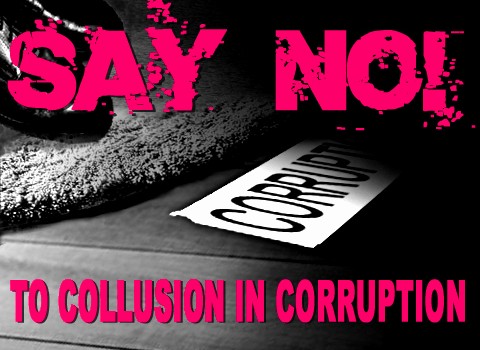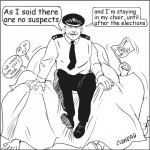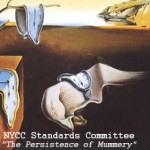“Me Too!” – a mystery of many parts . . .
- An ‘In My View’ article – byNigel Ward
IN THE PUBLIC INTEREST
Every community produces citizens who are willing to interest themselves in scrutinising the integrity of the administration. Those who do, do so on behalf of the whole community. To characterize their voluntary work in the public interest as ‘trouble-making’ is fatuous.
~
Before embarking on this opening episode of the “Me Too!” mystery, readers may find it helpful to review my Notes on Anonymous Sources of Information that appear beneath the article. It will become apparent why I mention this as the article progresses. Hopefully, my Notes will be helpful and informative.
I first took an interest in the Extended Schools “Me Too!” Voucher Scheme (which, to remind readers, was a 2008 Labour Government initiative providing ring-fenced funding to enable deprived children to engage in extra-curricular learning opportunities (horse-riding, photography, dance, learning to swim, etc) following an article in the Whitby Gazette in November 2010, entitled “Activities launch for youngsters”, in which Councillor Joe Plant was quoted as saying:
“The free school meals and the Me Too vouchers are there for you and to help you. In the simplest terms use them or lose them.”
Councillor Joe Plant was promoting the scheme as part of his position as Chair of the NYCC Young People Scrutiny Committee, who had oversight of the initiative. (The Young People Scrutiny Committee meets six times a year, and the Chair receives an additional £4,632 in Allowances – that is £772 per meeting – plus a few photo opportunities with the Gazette. Nice work if you can get it. (As a Conservative Councillor and Kenyon protégé, you probably can get it). It makes one wonder what is the primary motivation for some people seeking election.
I soon learned that the scheme had aroused some confusion as to which children would qualify as being sufficiently ‘deprived’ as to merit receiving free “Me Too!” Vouchers. Would discriminating between children risk ‘stigmatising’ the poorer families?
This was quickly resolved when it was recognised that certain areas are officially classified as ‘deprived’, and within these areas (Whitby and the Esk Valley being one) ALL children could receive the free “Me Too!” Vouchers. No discrimination, no means-testing! Hooray! Problem solved. Roll out the extra-curricular learning courses!
The “Me Too!” scheme was rolled out in our area under the direct administration of Whitby Community College (WCC), where County Councillor Jane Kenyon is one of three Local Authority Governors. The head teacher is Mr Keith Prytherch. Remember the name. The scheme fell under the purview of the North Yorkshire Children’s Trust Board (Chair: Cynthia Welbourn), a body that meets quarterly.
The Agendas and Minutes of its last six meetings make no reference to the “Me Too!” Voucher Scheme – a little curious, because Ms Welbourn is said to be the NYCC Officer responsible for how the “Me Too!” Voucher Scheme was devised. And yet the Public Record shows that the North Yorkshire Children’s Trust Board (whose endorsement is displayed on the Vouchers themselves) has seemingly not been kept abreast of the scandal that has been steadily simmering away behind closed doors.
I soon learned that the way in which the system was devised left it open to all manner of abuse – and, indeed, that there were grave concerns at County Hall that the system had already been abused. Rumours circulated that it would have to be suspended, pending an investigation by the NYCC Audit Committee.
On 21st January 2011, an announcement appeared on the East Whitby Primary web-site, signed off by Tony Mok, Headteacher. It has since been removed, but the salient paragraph stated:
- “It has come to my notice that pupils/families not from East Whitby have somehow obtained East Whitby School vouchers and are using them fraudulently. Not only is this illegal but it reflects very badly on us as a school, as people will automatically assume the worst, and accuse East Whitby parents of passing the vouchers on.”
Alarm bells! “Using them fraudulently”? “Not only is this illegal”?
Whoa! B-I-G trouble! But somehow compartmentalised and not communicated to the umbrella body, the North Yorkshire Children’s Trust.
Early in February 2011, I received a rather surprising ‘heads-up’ from an NYCC ‘whistle-blower’. I will return to that presently.
I was also visited (on separate occasions) by two School Governors (from different Schools), each of whom expressed alarm at what they had learned at School Governors’ meetings held under the Chatham House Rule – ‘behind closed doors’ (See my Notes, below). Briefly, the Rule states that you can quote what was said, but not by whom it was said – even by implication – nor name anyone who was present.
They were also aware of the extraordinary degree of Public Interest in the “Me Too!” Voucher Scheme.
They each claimed that they had been informed of systematic abuse of the “Me Too!” system. Details included that:
- Large-scale forgery of Vouchers had taken place.
- Forged Vouchers had changed hands for cash.
- Vouchers (which carried no specific cash-value) had been accepted against whole courses of activities, rather than single one-hour sessions (as had initially been the intention), with ‘providers’ subsequently invoicing WCC for huge amounts of money in respect of each of many individual Vouchers.
- Some ‘providers’ had been ‘tipped off’ to create ‘services’ specifically for the purpose of being able to take advantage of the ‘licence-to-print-money’ way in which the system was organised.
- Some ‘providers’ (including SBC) had been accepting Vouchers against retail goods – in some cases, goods of considerable value – against a single Voucher (subsequently invoiced to WCC at full retail price).
- Some ‘providers’ had deliberately targeted unaccompanied children and encouraged them to accept highly-priced goods or services in order to claim the most possible money back from WCC.
- At least one ‘provider’ had submitted invoices in excess of £100,000.
- A County Councillor had, on behalf of that ‘provider’, lobbied County Hall to expedite the settlement of those invoices.
- Furthermore, that same County Councillor had an undeclared personal interest in relation to the ‘provider’.
Both of my visitors felt that they had been given only a very diluted version of the true state of affairs. The “Me Too!” Voucher Scheme seemed to them to have been deliberately structured in such a way as to enable carefully selected ‘providers’ to siphon off huge amounts of money, with the further implication that ‘kick-backs’ may have been subsequently passed back to certain elected representatives and/or paid public servants – ‘graft’.
The Free Dictionary defines graft 2 as follows:
- 1. Unscrupulous use of one’s position to derive profit or advantages; extortion.
And yet the Public Record shows that no word of all this was reported to the North Yorkshire Children’s Trust Board.
I decided to investigate.
I had my work cut out, but I already had some useful information via the ‘heads-up’ that I received from the NYCC ‘whistle-blower’, as mentioned near the beginning of this article.
Perhaps the easiest way to explain how the investigation moved forward is to quote verbatim a passage from my 8th May 2011 email to the Department of Education’s ‘Early Intervention’ Division, in which I summarised my concerns. (I will return to the rest of this same email in a later episode).
1) One Sunday, early in February [in fact, 6th February], while returning from a dog-walk that proved too much for me (so I allowed my wife and dog to continue without me) I was approached in the environs of Whitby Abbey by a smartly-dressed man in his forties. He told me that he was a middle-ranking employee of NYCC and that he had sought me out on account of my reputation for voluntary work in the public interest. He had identified me, apparently, my from my FaceBook profile picture.
2) Naturally, I took a sceptical view, but over the course of an hour’s conversation, he so impressed me with his knowledge of names, positions and procedures within NYCC, SBC and the Whitby area schools administration that I became convinced of his authenticity and sincerity.
In brief, his story was this:
a) NYCC Legal were investigating suspicions that certain aspects of the “Me Too!” voucher scheme had been exploited for personal gain. The Audit Committee was involved.
b) Suspicions had arisen because of the implausibly high level of invoices from certain ‘providers’. He named some and mentioned figures of well in excess of £100,000.
c) He also stated that there appeared to be a highly-organised ‘system’ in place to exploit various shortcomings in the design of the ‘Me Too!’ voucher scheme – specifically, he mentioned ‘forging’ of vouchers, ‘providers’ created for the sole purpose of exploiting the scheme and the ‘nepotistic’ tipping-off of family members to ‘jump on the band wagon’.
d) Finally, he maintained that he had reason to believe that the investigation pursuant to the foregoing was, in fact, directed principally towards the exculpation of certain officers and elected members – one of whom he named. He concluded by stating that he had no confidence in the Council’s internal ‘whistle-blowing’ procedures.
I was, of course, completely non-committal in my response, telling him that I would need hard evidence before I could possibly consider proceeding with any action. I asked him to provide more concrete evidence, but he stormed off saying that he was already ‘risking everything – and for nothing’. I was, of course, intrigued.
3) Over the next couple of weeks, I did some Googling, from which I learned that the scheme was intended to provide an hour of any given extra-curricular activity per voucher. I also contrived casual conversations with acquaintances with children of school age. I was shocked by the anecdotal evidence that came to light. It was clearly commonplace that vouchers had been exchanged, often with unaccompanied children, for goods of considerable value. Providers were named. Some parents spoke of children re-selling goods on eBay and returning to ‘buy’ the same goods again and again – ‘paying’ with vouchers.
4) At about this time, I started to receive ‘hate’ mail (both through the postal service and by hand) and a message that I took to be a death threat was scrawled on the beach in front of my house. It referred to my intended candidacy in the 5th May elections, saying ‘STAND AND DIE’. I reported this to the SBC Monitoring Officer on 28th February, but it was not until the 18th March that he met me to discuss the matter. He was dismissive. At that time, I had not directly connected it with my ‘Me Too!’ enquiries.
5) I also received anonymous tip-offs about the “Me Too!” scheme, by hand and by email. Specifically, I was informed that an NYCC Councillor (the same one named by my initial contact) was involved in trying to secure payment of an outstanding invoice. I was also given another name (again one mentioned by my mystery man) as having been responsible for vetting providers, including a long-term personal friend of hers, who had been tipped off to run a service suitable for the scheme because it was ‘a licence to print money’.
6) Beginning on 29th March 2011, I began formally requesting information from NYCC under the provisions of the Freedom of Information Act 2000. The Council has not been particularly forthcoming, referring me to Whitby Community College. The headmaster has not acknowledged or responded to my request for information. Scarborough Borough Council has also failed to provide information requested under the provisions of the FOIA2000. An email to the four NYCC Councillors in the Whitby area elicited two denials of any knowledge of the matter, one no-response, and one response protesting innocence in such extreme terms as to excite suspicion. I do not need to tell you which one.
One would have thought that such a large-scale case of fraud and forgery – crimes that have featured frequently in recent Real Whitby articles (and in Private Eye) – should have been raised with the North Yorkshire Police even before I began my investigation. But when I invited NYCC Head of Legal Carole Dunn, in an email dated 7th April 2011, to come to Whitby and examine my files, she declined.
It was not until 19th June 2012 (fourteen months later) that Carole Dunn finally confirmed to me that the year-and-a-half-long NYCC investigation had finally been passed to the Police – now that memories have faded and witnesses have moved away or died. She did not provide me with a Crime Number, so I have no easy way to determine whether or not the Police have actively pursued the matter.
Well, I have pursued the matter; but we would not want to provoke another compromised Police Investigation, so I will be reporting on my further progress, here on Real Whitby, in due course . . .
Confused? Me too! But all will become clear as the story unfolds . . .
In the meantime, I would be pleased to see readers’ suggestions as to how a concerned member of the public might go about pursuing such a fraud and forgery investigation – in the comments section, below, please; politely, on topic, and with reasoned arguments.
So over to you – all you Sherlocks. How would you set about solving this flagrant case of fraud, forgery and corruption?
Notes on Anonymous Sources of Information
Not very many people are familiar with the Chatham House Rule. It is a very simple rule adopted by many organisations; readers will be well-served by reading and digesting this carefully before we proceed:
- “When a meeting, or part thereof, is held under the Chatham House Rule, participants are free to use the information received, but neither the identity nor the affiliation of the speaker(s), nor that of any other participant, may be revealed.”
The Chatham House website offers the following explanation:
- “The Chatham House Rule originated at Chatham House with the aim of providing anonymity to speakers and to encourage openness and the sharing of information. It is now used throughout the world as an aid to free discussion.”
In short, you may repeat what was said, but not by whom – and you must not disclose who was present.
In its intent to safeguard confidentiality, it is similar in intent to the ‘protection of sources’ laws pertaining to the confidentiality of journalistic sources, which Wikipedia explains thus:
- “Simply put, it means that the authorities, including the courts, cannot compel a journalist to reveal the identity of an anonymous source for a story.”
School Governors are made aware of the standard ‘public interest test’, as advised by the government:
- “The test requires authorities to undertake a balancing exercise to consider the public interest in disclosing information and the public interest in maintaining the exemption.”
“Me Too!” was important to every child and parent in the area, and, in a different sense, to many businesses, too – the ‘providers’ of “Me Too!” activities amongst them, who suddenly stood to lose a very valuable source of revenue.
The public interest was, and is, overwhelming.





























Comments are closed.